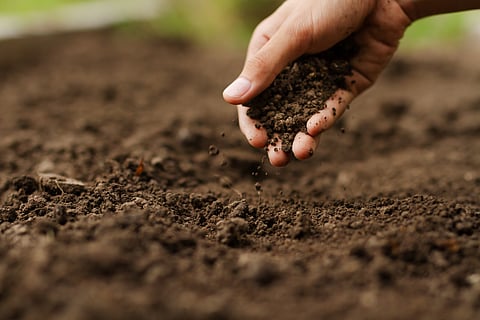

The United Nations Educational, Scientific and Cultural Organization (UNESCO) issued a stark warning, stating that a staggering 90 per cent of the planet’s land surface could be degraded by 2050. This alarming prediction highlights a major threat to global biodiversity and human life.
In a press release, UNESCO emphasised the urgency of the situation. During an international conference held in Agadir, Morocco, Audrey Azoulay, Director-General of UNESCO, made a direct appeal to the organisation’s 194 member states, urging them to prioritise soil protection and implement effective rehabilitation efforts.
Soil plays a crucial role in sustaining life on earth and yet it is often neglected and poorly managed, she said in the statement.
“UNESCO is calling on the international community to make this a priority. With sixty years of experience in soil science, our Organization will help States to advance knowledge and train professionals so that the necessary measures can be taken,” Azoulay said at UNESCO International Conference on Soils, held on July 1, 2024.
She highlighted the importance of soils in maintaining ecosystems and biodiversity, producing food, purifying water and regulating climate.
According to the World Atlas of Desertification, 75 per cent of soils are already degraded, directly affecting 3.2 billion people. If business as usual continues, the current trend may increase the impact to 90 per cent by 2050.
The conference, organised by UNESCO and the Kingdom of Morocco’s National Agency for the Development of Oasis and Argan Zones (ANDZOA), brought together experts and representatives from 30 countries.
The conference’s goal was to have discussions that would lead to an action plan for achieving goals such as improved soil protection and rehabilitation. The other two are filling scientific knowledge gaps in the field and increasing the commitment of young people and communities through education and training programmes.
UNESCO has pledged to support its member states by establishing ‘world soil health index’ in association with its international partners. The index will help to standardise measure for analysing and comparing soil quality in different regions and ecosystems.
Bringing it together on a common platform will allow for the identification of trends indicating degradation or improvement, as well as the identification of most vulnerable areas. The practice aims to improve evaluation of the effectiveness of soil management practices.
In addition, UNESCO will launch a pilot programme for long-term soil and landscape management in ten natural sites supported by its Biosphere Reserves Programme.
The initiative will assist in assessing the management methods used on these sites and ensuring that best practices are developed and implemented in other parts of the world.
“Site managers will be encouraged to develop innovative soil conservation and land management projects,” the statement said.
UNESCO will provide training to its member government agencies, indigenous communities and conservation organisations, allowing access to as many soil-protection tools. The agency also aims to attract younger generations by incorporating an educational component to raise awareness among youth.